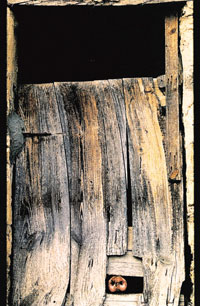Hello and welcome to the history page. This week we will resume our discussion of the Spanish Civil War with a brief sketch of this little-understood conflict. Though short in duration and wholly contained within Spanish territory, it marks a significant chapter in contemporary European history for three main reasons. First of all, in only three years of fighting, one million lives were lost, making it one of the bloodiest 'small' wars in recent history. Secondly, the conflict can be seen as (and should have been seen as) a foreshadowing of WWII, fuelled both ideologically and militarily by Hitler and Mussolini (on the side of the Nationals), and by the Soviet Union and the International Brigade, (on the side of the Republicans). Lastly, the ultimate victory of Francisco Franco, the 'superlative general', ushered in a 40-year dictatorship governed by the Falangist party, the only branch of fascism to effectively survive the Axis defeat in 1945.
With over 20,000 books written on the subject, from every conceivable political angle, it will indeed be difficult to sum up the complexities of this war in one instalment. However, stripped down to its basic components, one could say that the Spanish Civil War was an ill-fated fight for democracy, waged in a social climate of gross inequality. The Republican cause was supported by the intelligentsia and the economically oppressed sectors of the population, while, on the other side of the fence, the Nationals (comprised mainly of the upper classes, the army and the Church) endeavoured to maintain the status quo in the face of a rapidly changing social order.
Alfonso XIII
But, perhaps we'd better take a few steps back. In order to understand the social and political climate that led up to war, let us begin our overview at the turn of the 20th century, with the reign of Alfonso XIII. For those who are superstitious, it will not seem amiss that this king's reign proved especially unlucky, at least as far as the Spanish monarchy is concerned.
In 1902 Alfonso XIII assumed the throne, thus terminating his mother's conflict-ridden regency. Although the new king was only 16-years-of-age, he was apparently considered old enough to rule a country in deeply troubled times. Only four years earlier, Spain's defeat in the Spanish-American War had jolted the population into a painful questioning of its political identity. This period of introspection, known as the Crisis of '98, is often sited by political analysts as the seed of critical awareness that, 35 years later, would give rise to the Spanish Civil War.
In effect, the bases of internal conflict came into such sharp focus at this juncture that the ideologies at stake would simply not recede into the collective unconscious. Rather, having been brought to the light of public scrutiny, these quite disparate ideologies would continue to push for expression in the manifest world. It was this continual push and shove by two polarized blocks that eventually erupted into civil war, as bitter as any ever fought.
Age Old Power Struggle
What, then, were these contrasting points of view? The crux of the conflict lay in the fact that Spain's system of government, a parliamentary monarchy, did not give fair representation to large sectors of the population. From a purely theoretical point of view, the system seemed perfectly democratic: two parties, the Liberals and the Conservatives, shifted pacifically in and out of office according to the results of general elections. In reality, however, the elections were fixed, and the dual-party system proved to be a mere cover-up for maintaining power in the hands of a select few. Non-dynastic parties (i.e. those opposed to the monarchy: republicans, socialists, Catalan activists, etc.) were excluded from the inner circle, thus stifling the political expression of increasingly aware sectors of the population.
As my old college history book* brutally puts it, "The actual backbone of the system was not in the real forces of the country, but rather in the more conservative, privileged and exclusive sectors, who controlled the power: the nobility, the Church, the army and the bourgeoisie. These sectors made up the national oligarchy and upheld regional and local caciquism. As effective ruling groups, they controlled the parties and dominated the whole country, systematically falsifying the elections. Democratization and parliamentary liberalism were thus more apparent than real and political life devolved into legal authoritarianism."
Closing
As predicted, we did not manage to summarize the Civil War in one instalment, but at least we have laid down the preliminary groundwork. Next week we will carry on with our overview, postponing the specific treatment of the effects of the war in Ibiza until we are able to understand it from an informed perspective. Until our next instalment,
*Geografía e Historia de España y de los Paises Hispanicos, Ediciones Anaya S. A., 1980.Emily Kaufman
Emily Kaufman
emilykaufman@ibizahistoryculture.com

